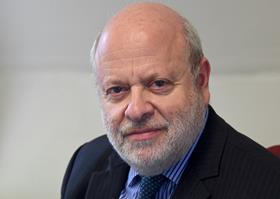
The Legal Services Board is consulting on its draft business plan 2019/2020. If that sounds dull, I can assure you that there are huge and interesting issues contained in it.
Three new five-year policy objectives have been introduced. Those looking warily for the tired old issue of greater competition in the legal profession (at the expense of practically any other consideration) will be reassured to see that the word ‘competition’ appears only once in the draft business plan, when referring to a historic report of the Competition and Markets Authority. The new chair appears to be steering the LSB away from its old obsession.
The three five-year policy objectives are as follows, that:
- regulators have appropriate frameworks for continuing assurance of professional competence throughout the careers of the people they regulate
- the LSB is perceived as being at the forefront of enhancing public legal education
- access to legal services is increased through the promotion of responsible technological innovation that carries public trust
There is also an interesting opening section which surveys developments in which lawyers are currently operating, divided into market, political and regulatory sections. It gives a handy run-down. For instance, and more or less at random:
- the Legal Services Consumer Panel’s tracker survey shows that consumer satisfaction with legal services is at an all-time high
- the number of ABSs has broken through the 1,000 mark 10 years after the Legal Services Act 2007 and each of the ‘big four’ accountancy firms now has an ABS licence
- there has been a wave of legal services firms listing on the London Stock Exchange
That is not to say that there are not contentious matters in the consultation. For instance, these two sentences contain great danger for the Law Society’s future income, and therefore for its capacity to assist the profession during turbulent times – ‘During 2019 we intend to review our rules, guidance and approach to assessing PCF (practising certificate fee) applications. As part of this review, we plan to conduct a targeted review of expenditure on permitted purposes.’
In other words, the LSB will be looking at how much of the practising certificate fee goes to the SRA and how much to the Law Society. This is ominous given that the consultation specifically says that the LSB is concerned about the impact of what is called ‘non-regulatory permitted purposes’ – that which is within the Law Society’s allocation - on the level of the fee.
The issue on which I would like to dwell, however, is the first of the five-year policy objectives listed above, namely how we assure professional competence throughout a solicitor’s career. That is because English and Welsh solicitors are in a curious position.
The SRA’s outcomes-based approach to regulation means that we are among a small handful of EU member states’ legal professions either not to have specific rules on how continuing professional development (CPD) should be undertaken, or not actively planning to introduce such rules. The others without rules or plans are: the Czech Republic, Greece, Portugal and Spain, of which Spain is the only one to have a profession of a similar size to our own.
But the SRA is unique in Europe in having had specific rules for CPD in the past and having thrown them away. We are now bound only by SRA principle 5 from the SRA handbook to provide a proper standard of service to our clients, and therefore to meet the requirements of the Statement of Solicitor Competence, without further detailed rules.
I have a question: does this make us very advanced, very backward, or is the existence of specific CPD rules irrelevant to our profession’s standards and reputation? The initial look, when surveying how importantly other professions treat CPD in their rules, is not good, but that may be misleading.
The rules in the other EU states vary widely – from eight to 20 hours compulsory training per year, and from the need to undertake specific courses or training in specific categories to a much more relaxed approach.
The profession which is most like ours is the English bar, where the number of hours and type of activity are not prescribed and depend on each individual’s experience, area of law, and development needs. However, the BSB still imposes certain requirements: barristers must draw up a plan of the CPD they intend to undertake each year, then complete and record them, then reflect on how they have done at the end of the year, and finally report that they have completed their CPD requirements at the end of each year. That sounds like quite a few rules.
If you are interested in the LSB consultation, a workshop has been arranged at its offices on 15 January to facilitate interested parties’ responses. The consultation closes at 5pm on Wednesday 27 February.



























5 Readers' comments